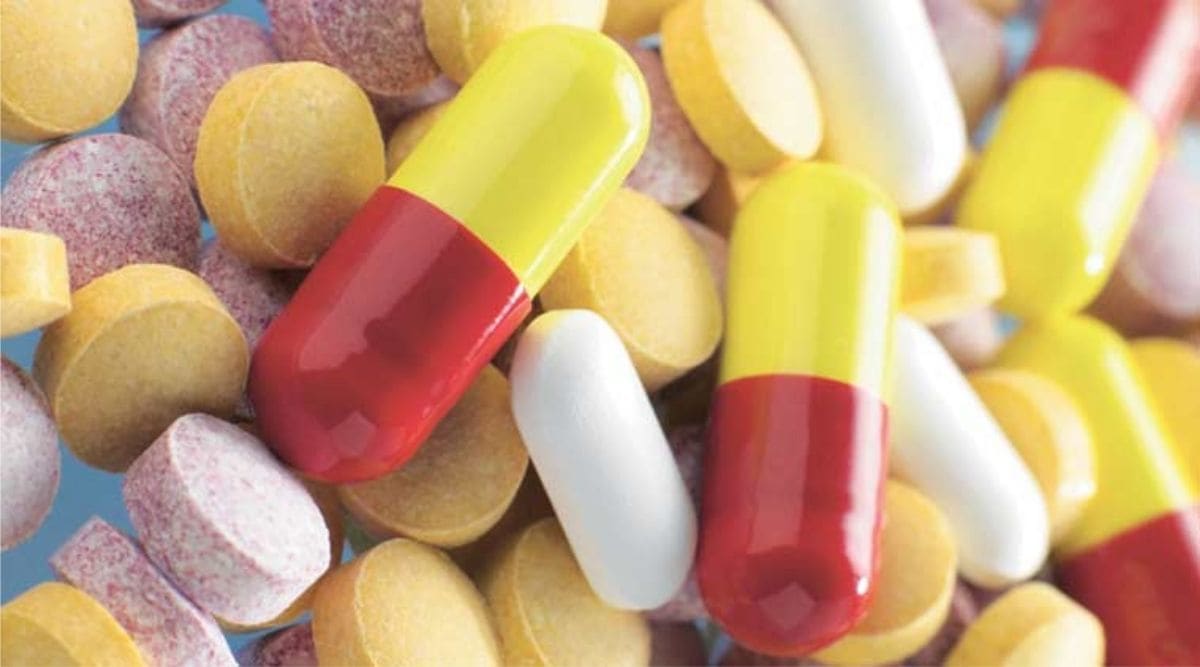 The need for the portal was felt as many government hospitals in the state faced a crisis of medicine shortfall over the past few days.
The need for the portal was felt as many government hospitals in the state faced a crisis of medicine shortfall over the past few days. AFTER BEING forced to destroy medicines worth Rs 1.83 crore whose validity had expired across the seven government hospitals in Maharashtra, the state government has now decided to set up a dedicated portal that will help in the optimum usage of these medicines and will also allow government hospitals to barter drugs that they are falling short of.
The dedicated portal called e-Aushadhi has been set up by the Medical Education Department. The portal is a supply chain management application software solution for managing annual demand and purchase of medicines with the government medical colleges (GMC).
“With the help of the portal, we would be able to access information about the availability of medicines across the medical colleges. This will not only increase transparency but also help the colleges to exchange the near-expiry medicines with others as a barter system,” Amit Deshmukh, Medical Education Minister, told The Indian Express.
The need for the portal was felt as many government hospitals in the state faced a crisis of medicine shortfall over the past few days. The shortfall forced patients like Gauri Prajapati (38) to purchase simple calcium D3 deficiency tablets, which normally should be available in government hospitals from private medical stores.
“Due to the constant pain in my knee, I start limping if I walk for too long. I work as a domestic maid to support my family. So, even if I didn’t want to buy the medicines, I had to,” said Prajapati, who sought treatment from J J Hospital.
In J J Hospital, a total of 5.7 lakh calcium D3 deficiency tablets amid the Covid-19 pandemic between 2020 and 2021.
Medicines worth Rs 85 lakh have expired at JJ hospital alone, the biggest government medical college in Maharashtra. It is followed by BJ Medical College, attached to Sassoon hospital in Pune, where drugs worth over Rs 50 lakh expired. At Shri Vasantrao Naik Government Medical College, Yavatmal, over RS 14 lakh worth of medicines expired. At GMC in Aurangabad and Miraj, amid the pandemic, medicines worth Rs 4.14 lakh and Rs 28.19 lakh expired, respectively. Nagpur’s GMC and Dr Babasaheb Ambedkar Hospital and Research Centre (BAHRC) saw medicines worth Rs 1.25 lakh and Rs 6.91 lakh get wasted, respectively.
The data came to light in reply to a Right to Information (RTI) filed by Abhay Pandey, President of All Food and Drug License Holder’s Foundation (AFDLHF).
When The Indian Express analysed the data, it was found that at JJ hospital, nearly 87 types of medicines expired during the period. This includes 1,464 units of acyclovir injection — used to treat herpes — worth Rs 43,451; antacid syrup worth Rs 13.32 lakh; over 3 lakh units of antibiotic amoxicillin trihydrate worth Rs 6.65 lakh among others.
At GMC, Miraj a total of 110 types of medicines got wasted. This includes 12,001 units of paracetamol injections, 367 units of insulin plain injections, 6,274 amoxicillin tablets, 5.79 lakh tablets of T-calcium carbonate, 1.81 lakh CPM tablets used to treat inflammatory and allergic conditions, 23 units of Dopamine injection used for the treatment of low blood pressure, and 10,323 units of Magnesium sulphate injection used for paediatric acute nephritis and to prevent seizures in pregnancy.
In Sassoon Hospital, around 82 types of medicines got expired. The list includes 308 units of phenobarbitone injection used in the treatment of epilepsy, 74,510 units of antibiotic metronidazole 400mg, 29,059 units of pain-relieving Diclo injection, 20 units of anti-Diphtheria Serum. Among others, four units of tocilizumab 400mg also expired at the hospital.
At GMC Yavatmal, the list includes paracetamol injections, acyclovir 500 mg — an antiviral medicine used in the treatment of herpes virus, Clobetasol propionate — a corticosteroid used to treat skin conditions among 35 other types of medicines that have expired.
The medical colleges have attributed this wastage of essential medicines to the pandemic when the footfall of patients with OPD and surgeries dropped by nearly 80 per cent. For instance, JJ hospital recorded 3.6 lakh new OPD patients in 2019, which dropped to 2.28 lakh in 2020. Similarly, the number of admissions plunged from 55,411 to 28,284 in the same period.
“Procurement of the medicines was done before the start of the pandemic. So, during the pandemic, when the footfall of patients dropped, the requirement for medicines nearly halved. This led to such a huge wastage of medicines,” said an officer from the hospital.
Dr Vinayak Kale and Dr Milind Fulpatil, Dean of Sassoon and GMC in Yavatmal respectively, refused to comment on the matter until they inquired from the hospital’s drug store department.
Pandey claimed that the absence of the mechanism to check the near-expiry medicines in GMCs was what has accentuated the shortage problem.
The state now feels that the opening of the new portal could ease the problem.
- The Indian Express website has been rated GREEN for its credibility and trustworthiness by Newsguard, a global service that rates news sources for their journalistic standards.

